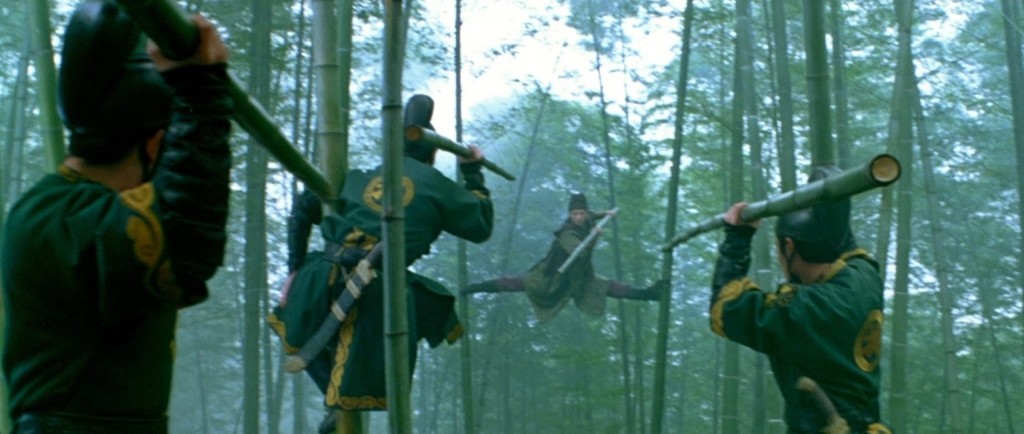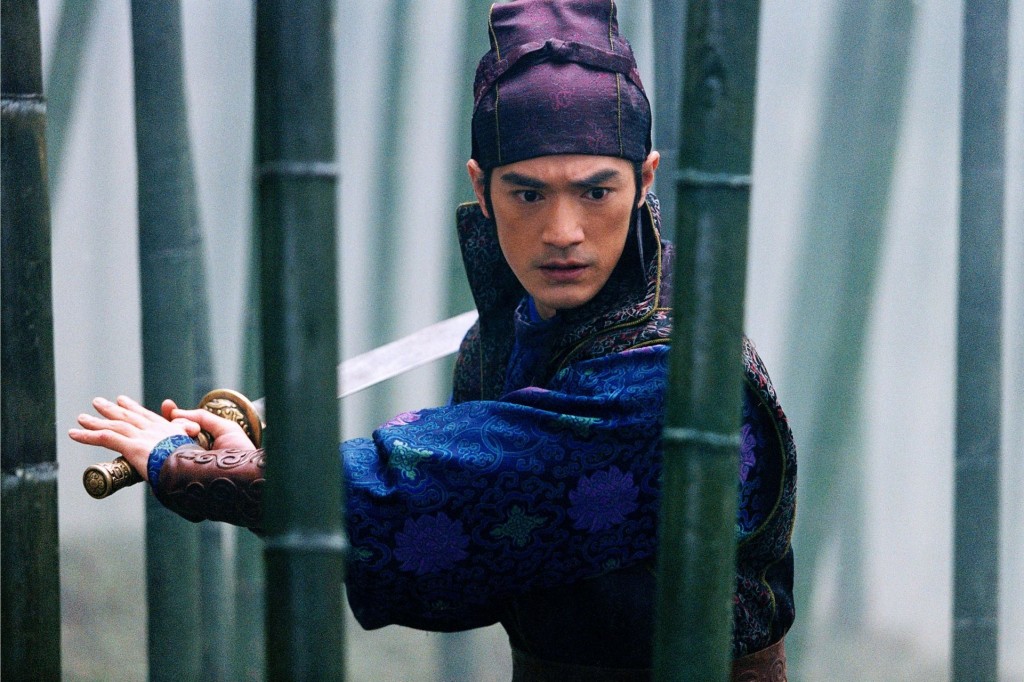
Portrait de Francois Marie Arouet dit, 1694-1778, tenant l’annee litteraire. Peinture de Jacques-Augustin-Catherine Pajou (1766-1828), 18eme siecle. Paris, Comedie Francaise
Among other things, he was famous for saying, “Those who can make you believe absurdities can make you commit atrocities.”
Wiki needs more than one entry to cover his c.v. Here’s the thumbnail backgrounder:
Born
François-Marie Arouet
21 November 1694
Paris, France
Died
30 May 1778 (aged 83)
Paris, France
Resting place
Panthéon, Paris, France
Pen name
VoltaireFrançois-Marie Arouet (French: [fʁɑ̃swa maʁi aʁwɛ]; 21 November 1694 – 30 May 1778), known by his nom de plume Voltaire (/voʊlˈtɛər/;[2] French: [vɔltɛːʁ]), was a French Enlightenment writer, historian and philosopher famous for his wit, his attacks on Christianity as a whole, especially the established Catholic Church, and his advocacy of freedom of religion, freedom of speech and separation of church and state.
Voltaire was a versatile and prolific writer, producing works in almost every literary form, including plays, poems, novels, essays and historical and scientific works. He wrote more than 20,000 letters and more than 2,000 books and pamphlets.[3] He was an outspoken advocate of civil liberties, despite the risk this placed him in under the strict censorship laws of the time. As a satirical polemicist, he frequently made use of his works to criticize intolerance, religious dogma and the French institutions of his day.
For our purposes, the work of most interest is a short novel called Candide, a kind of candied poison cooked up for the philosophers of his day. Wiki gives us the lowdown.
Candide, ou l’Optimisme (/kænˈdiːd/; French: [kɑ̃did]) is a French satire first published in 1759 by Voltaire, a philosopher of the Age of Enlightenment.[5] The novella has been widely translated, with English versions titled Candide: or, All for the Best (1759); Candide: or, The Optimist (1762); and Candide: Optimism (1947).[6] It begins with a young man, Candide, who is living a sheltered life in an Edenic paradise and being indoctrinated with Leibnizian optimism by his mentor, Professor Pangloss.[7] The work describes the abrupt cessation of this lifestyle, followed by Candide’s slow and painful disillusionment as he witnesses and experiences great hardships in the world. Voltaire concludes with Candide, if not rejecting Leibnizian optimism outright, advocating a deeply practical precept, “we must cultivate our garden”, in lieu of the Leibnizian mantra of Pangloss, “all is for the best” in the “best of all possible worlds”.
Candide is characterized by its tone as well as by its erratic, fantastical, and fast-moving plot. A picaresque novel with a story similar to that of a more serious coming-of-age narrative (Bildungsroman), it parodies many adventure and romance clichés, the struggles of which are caricatured in a tone that is bitter and matter-of-fact. Still, the events discussed are often based on historical happenings, such as the Seven Years’ War and the 1755 Lisbon earthquake.[8] As philosophers of Voltaire’s day contended with the problem of evil, so does Candide in this short novel, albeit more directly and humorously. Voltaire ridicules religion, theologians, governments, armies, philosophies, and philosophers. Through Candide, he assaults Leibniz and his optimism.[9][10]
If it hasn’t already, the name Pangloss will soon ring a bell.
He makes an appearance in the back room at Moon Books and many appearances in the cocktail lounges serving Shuteye Town’s subway travelers.
Unless you discovered this post by accident, you are here because you are looking for the missing text files of Daniel Pangloss’s Conversations in the lounges of the Shuteye Transit subway system. The good news is that we can give you one Pangloss conversation now (and live links to much more Pangloss here later on below…):
BAHAMMA BULL The Sugar Reef – A Millennium Eve Celebration
The Speakers of the Conversation: DANIEL PANGLOSS, a journalist; ROGER LANDERS, an emigré, and PATRICK RAYMOND, an entrepreneur. The setting is an open-air restaurant overlooking the night-darkened turquoise of the Carribbean Sea. A mild breeze washes the tables with the smell of salt and wet wood. There is a pervasive sense of nothing urgent in the air. Roger and Patrick have already had a leisurely dinner of fresh water lobster, and the empty shell carcasses are flanked by several empty bottles of champagne.
DANIEL: I see that everyone has started without me. You’d better order another bottle of Moet. I’ve got some catching up to do.
ROGER: You’re not the only one who needs to catch up. I’ve been dying to hear all the latest gossip from Ameria.
DANIEL: Surely, Patrick keeps you current on the news. I myself don’t pay much attention these days to goings on outside Shuteye Town. It’s a lot of responsibility working with the wonderful kidz of Ameria. Doesn’t leave much time for kibitzing on the great events of the day.
ROGER: Really? Even if the great events of the day seem increasingly to involve school shootings by the wonderful kidz of Ameria?
DANIEL: You see? You have been keeping up with things. I can’t think what I’d be able to add to your own perceptions and insights.
PATRICK: That’s where I’d say you’re being too modest, Daniel. I can inform Roger about the headlines since his escape—the tragic death of Lady Die, the empeachment of the Presdent, the ascent of the martyr Hillery, and the continuing sorrow of Ameria’s classrooms—but I’m at a loss to explain to him why it’s all for the best. And that is your new stock in trade, is it not?
DANIEL: I do my poor part to shed a ray of friendly light on fortune’s face. Would you prefer that I yielded to cynicism and fled the land of my birth?
ROGER: As I understand it, Ameria is consumed with curiosity these days about the phenomenon of their wonderful kidz shooting each other and their teachers to death. Patrick says the mass media are thrillingly sincere in their determination to find out why. Perhaps you could shed a friendly ray of light about that for us. You must remember, after all, that we are members of that low company who have yielded to cynicism. We are having a hard time, for example, understanding why the ‘why’ seems so impenetrable to the geniuses of the media.
DANIEL: Ah. I will confess that I, too, was puzzled for a time about that. Like you, I suppose, I considered the answer obvious. It took me some little while to work out the underlying beauty of the process which insists on transforming the self-evident into the inscrutable.
PATRICK: I would enjoy being able to see such an underlying beauty.
ROGER: Me too. I wonder what stands in my way. Is the beauty obscured by an intervening layer of ugliness? Or is it that the ugliness—unbeknownst to ignoramuses like Patrick and me—ought properly be regarded as a thing of beauty?
DANIEL: As an artist, Roger, you must be aware that beauty often contains features that would be ugly if they were not so harmoniously resolved in the whole. A beautiful woman is rarely pretty, just as a pretty woman is denied the attainment of true beauty by the predictable uniformity of her features. Yes, there is ugliness in the components of the school-shooting mystery. But there is also a triumphant beauty in the whole of the cultural response to that mystery.
ROGER: Just so we don’t get at cross-purposes in this discussion, can we agree on some matters of ugliness? For example, when we agree that the answer seems obvious, are we in fact agreeing that that obvious answer is the collapse of all institutions, professions, and disciplines which play any part in the raising of children? That everyone who dares to point a finger in any specific direction is also an accomplice? That it is not a question of deciding between video games and filmed entertainments, or between parents and teachers, or between child psychologists and juvenile court judges, child welfare bureaucracies and school administrations, rap and alternative rock music, drugs and corrupt role models—but that all of these are implicated, none of them incidentally, which means that there is no combination of censorship, surveillance, legislative extremism, and suppression of civil rights which can restore what has already been lost? Can we agree that this is the obvious answer we have been alluding to?
DANIEL: Yes, indeed. Absolutely. I thought it too obvious a point to articulate in this company, but I see that your cynicism has made you suspicious. Every individual and every institution is culpable. The society of Ameria exists in a state of universal abortion—which is to say that the Baby Boomers will not produce a generation of adults. Their offspring will grow to physical maturity and eventually to senility as superannuated children, locked forever in the absolute selfishness of the infant mind which has never been created as a self in the first place. We confront in our wonderful kidz an army of clothes hangers. But they are clothes hangers endowed with appetites, voices, and ceaseless motion. Their motion is like the milling of a crowd in some public place where there is nothing to see, nowhere to go, and nothing to do. Periodically, the milling builds to the semblance of a riot, but it contains no more real malice than a pot of soup brought accidentally to a boil. The boiled soup does not see itself as ruined. That definition exists only from the standpoint of those who stood ready to consume it.
PATRICK. We are still waiting for the beauty.
DANIEL. The beauty? Oh, yes. The beauty. I would say that the whole presents three distinct faces of beauty. The first is the beauty of poetic justice. The second is the beauty of perfect irony. The third is the beauty of a new birth, the emergence of a new form of being.
PATRICK: Now that you mention it, I do believe I see the irony. Here is a generation of parents who have been so consumed with their own desires and appetites throughout their lives that they embarked on a secret experiment—the attempt to sire a new generation without accepting the responsibility for raising them. Let the teachers teach them, let the television babysit them, let the mall and the mass media introduce them to the culture they would inherit. Meanwhile, the parents were free to do as they wanted. Free to be self-serving film producers, network executives, teachers, advertising copywriters, attorneys, politicians, journalists, and businessmen. Free to add their own little molehill of ugliness to the mountain of bad influence their children would have to surmount in order to raise themselves. Because this was a generation of parents who had also developed their own definition of freedom, meaning that freedom consisted of their right to act in their own self-interest even as they sought to limit the freedom of anyone who got in their way. Such a novel definition of freedom had to be accompanied by an equally novel definition of virtue—that whatever they did in their own self-interest was virtuous because they were the ones doing it, and whatever anyone else did in their own self-interest was something that needed to be regulated by the government.
ROGER: There was, to be fair, some guilt involved.
PATRICK: But a guilt denied. That’s why the irony is, as Daniel has suggested, so perfect. For the wave of denial has been the size of a tsunami. Parents who could not hold a hundred-word conversation with their own children professed a love and commitment to their kidz which was nauseating in its saccharine, self-serving hypocrisy. Citizens of the richest nation in recorded history, they lamented the declining standard of living that required both parents to hold full-time jobs, lest they be reduced to the penurious state of living without that second VCR, that third television, that fourth movie channel, that fifth trip this month to the restaurant. In penance—and in proof of their love for the kidz—they bought the little bastards off, with hundred-and-forty dollar sneakers, TVs, computers, cell phones, and all the baggy designer togs a kid might need to hide out in. And when anything went wrong with their little darlings, they were savage in their denunciation of the violence in the movies, the sex on MTV, the incompetence in the classroom, the easy availability of drugs, the danger of guns, and the dearth of fit role models for the sullen, resentful slugs they had spawned.
ROGER: And the irony? The beautiful, perfect irony?
PATRICK: I’m beginning to take Daniel’s point. The beauty of the irony is that they don’t know what’s wrong with the kids because none of them has ever really talked to the kids. If they had tried, they would know that it can’t be done. These are kids with only one skill—the ability to terminate any conversation attempted by an adult with a few inarticulate grunts. That’s why the teachers can’t teach them and don’t really try to. It’s why the mass media journalists can’t explain them, why child psychologists can’t help them, why the drug counselors can’t save them. Nobody knows why school shootings happen because nobody has any real communication with the kids, and everybody is denying that this is so. If the parents and teachers and child experts were any damn good, this wouldn’t, couldn’t be a mystery. The perception of mystery is, all by itself, the perfect indictment of universal neglect and incompetence. It really is kind of beautiful when you think about it.
DANIEL: If you can perceive the irony, you shouldn’t have too much trouble with the poetic justice.
PATRICK: You’re right. It’s your point about the soup. The Baby Boomers have flitted from one fad to another all their lives, looking for happiness and salvation in a world without meaning. Belatedly, they hit on the idea that having children would save them, especially as they began to fear the prospect of old age. They fully intended to consume the pot of soup. But the soup is spoiled. Their beloved kids won’t give a shit about them when they reach their dotage and need that soup. That’s another reason the mystery is necessary. Till the very end, the parents don’t want to admit the lonely old age that’s staring them in the face.
ROGER: And the third face of beauty?
DANIEL: Stop playing dumb with me, Roger. I know as well as you do that you didn’t leave your journal unfinished when you left. Everything important is already in there. You tell me about the new birth.
ROGER: Okay. From here on in it’s a new world. The technocratic system has come into its own now, and the X-Generation is perfectly adapted to that system’s wants and needs. There are two possible alternative outcomes—a long twilight of diminishing freedom and accelerating transactional velocity; or a cataclysm of some sort, a large-scale die-off that trims the human race back to manageable proportions. Either way, the principal attribute of the X-Generation—which is its undeveloped capacity for the experience of deep human emotion—will prove to be advantageous for the physical survival of the species. I cannot offer a helpful comment about the value of physical survival in the absence of emotional, intellectual, and spiritual survival. I am a cynic. I see no value in mere physical survival. But you, Daniel, I am sure you can articulate it if there is any.
DANIEL: I’m sure I can. Is there any more champagne?
PATRICK: Here comes the waiter now.
ROGER: It’s nearly midnight. Shouldn’t we be drinking a toast to the new millennium?
DANIEL: I’ll drink to that.
PATRICK: Me too.
ROGER: What the hell. Why not?
“Bahamma Bull” is not one of the missing texts of ST99. Because it didn’t take place in Shuteye Town. Daniel Pangloss spends much of his time outside Shuteye Town, in the fictional country of Ameria, otherwise known as Shuteye Nation. This is a place of its own, as much a creature of words as ST99 is of images, quite as vast in its own way and very intricately interconnected by hyperlinks. It has columns from the Shuteye Times and the Balow Star, as well as other mass media outlets from the years 2000 and 2001. It has its own Who’s Who listings of currently famous people, has-beens, foreigners, historical figures (to the extent we can remember them), a Glossary of the American language of the time that owes as much to Ambrose Bierce as the persona of Pangloss owes to Voltaire, and its own Undernet. Pangloss is a major content contributor at what may be the wildest component of Shuteye Nation, the Foreign Gazetteer. You’ll find him sharing his perspective on:

The Culture of Franch, specifically boobs, specifically philosophy, spectifically “La Danse Moderne.”
And as you might guess from the pic above, you can also read all the Lounge Conversations from the Shuteye subway line. They’re in print and waiting for your delectation. Good news, bad news: the Shuteye Nation stuff is free; the Lounge Conversations aren’t.



























